Five foods that help you sleep
Constantly exhausted? Try these five foods that help you sleep better
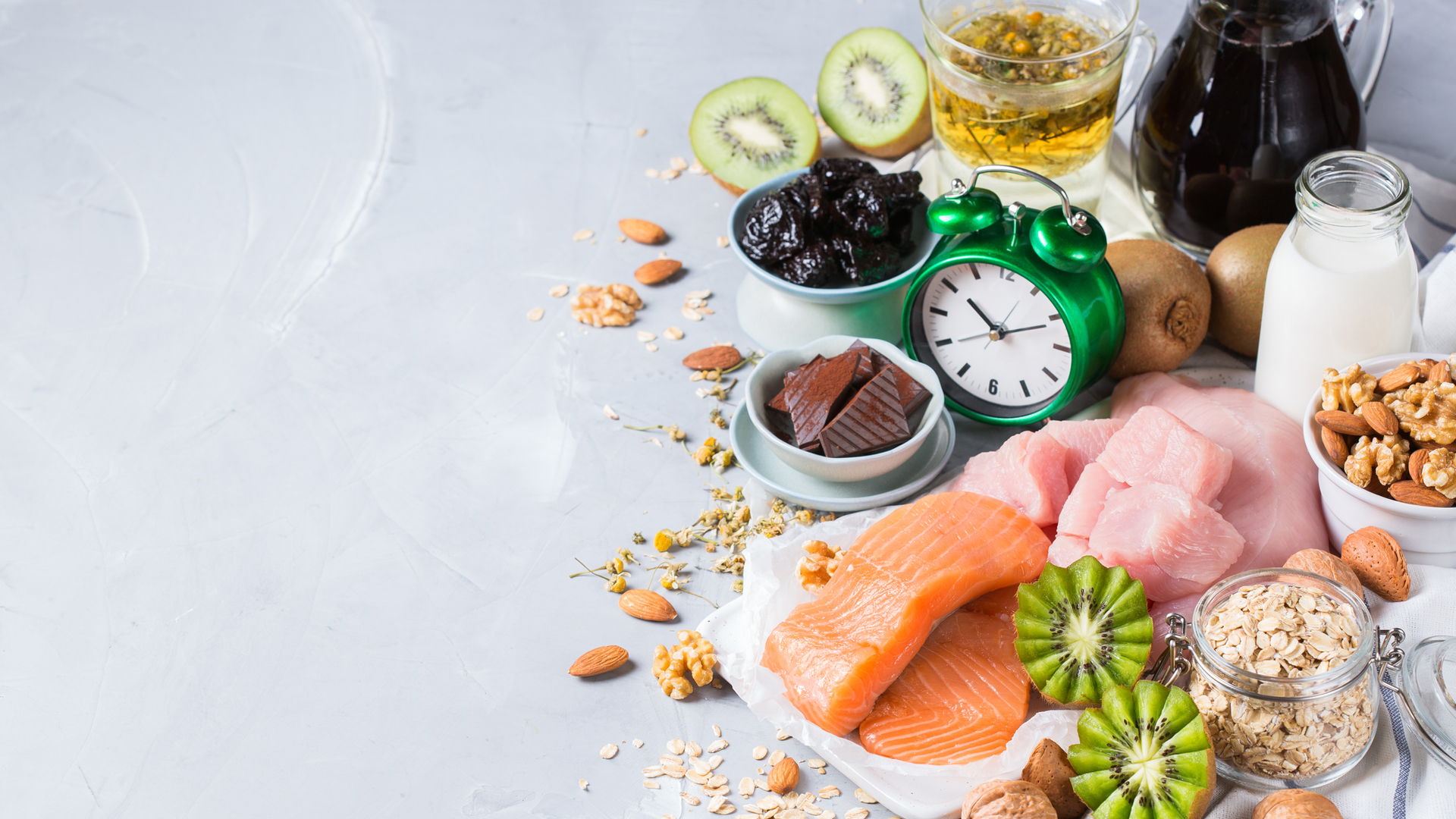
Eating foods that help you sleep can make a major difference to the amount of rest you get and may even speed up the time it takes to drop off at night. In fact, eating a balanced diet overall goes hand in hand with quality sleep.
So why do we need good sleep? According to registered dietitian Monique Richard, a spokesperson for the Academy of Nutrition and Dietetics and owner of Nutrition-In-Sight, “adequate and sufficient quality sleep is essential for the recovery of our systems through cellular turnover and a variety of molecular processes that happen while we are at rest”.
“Quality sleep allows cognitive function to be restored – according to the journal Cerebrum – for muscles to recover and for the accumulated toxins and byproducts to be cleared out,” she adds. “It also supports emotional and mood stability. Put simply, it is essential for physiological and psychological processes.”
By contrast, poor-quality sleep can affect our circadian rhythm: the body’s internal clock. Richard says that this can lead to higher cortisol (stress hormone) levels, which in turn can affect blood glucose regulation, altering energy levels and how the body stores energy.
And when you’re tired, the appetite-regulating hormones ghrelin and leptin can be affected, affecting food choices, as well as how much and how often you eat.
“Often, to combat fatigue, more 'instant gratification' choices are made, such as stimulants like coffee or foods higher in fat, sugar and/or salt,” Richard adds. “These can impact weight management, blood glucose regulation, or further deplete energy stores, making us more tired.”
It’s clear that good-quality sleep is crucial for overall health and wellbeing. As well as trying the best magnesium supplements to help you relax and unwind, read on to find out the best foods that have sleep-boosting properties.
- Related: How to fall asleep?
- Related: How to sleep for longer?
How does diet affect sleep?
Different foods can affect the quality of sleep for better or worse, but your genetic and physiological make-up and other variables will also have an impact, says Richard.
“Large amounts of saturated fat may affect sleep duration and overall sleep wellness — think meats, pizza, fast food, processed foods, desserts, pre-prepared meals and baked goods,” she says.

Monique Richard is a licensed dietitian and nutritionist with a Master of Science degree in Clinical Nutrition and minor in Psychology. She is a National Media Spokesperson for the Academy of Nutrition and Dietetics and the owner of Nutrition-In-Sight in Johnson City, where she offers nutrition communication, counseling and consulting services.
Alcohol can initially cause a relaxing effect, and often reduces the time it takes to fall asleep. However, according to the journal Alcoholism: Clinical and Experimental Research, it can then lead to disruptive sleep patterns with significantly reduced REM sleep. Richard says this stage is important for dreaming, memory, emotional processing and healthy brain development.
She adds: “Sleep quality and quantity also seems to be compromised from excess caffeine intake. In fact, for some, any caffeine, depending on how sensitive they are and their genetic disposition will be problematic. And it’s not just coffee, but coffee drinks, as well as chocolate and energy drinks that can cause problems.
“Caffeine reduces an enzyme – 6-sulfatoxymelatonin – that can affect the role of melatonin: the hormone that helps control your sleep cycle, interrupting how much rest you get that night.”
- Related: Is it bad to eat before bed?
- Related: Should you exercise before you sleep?
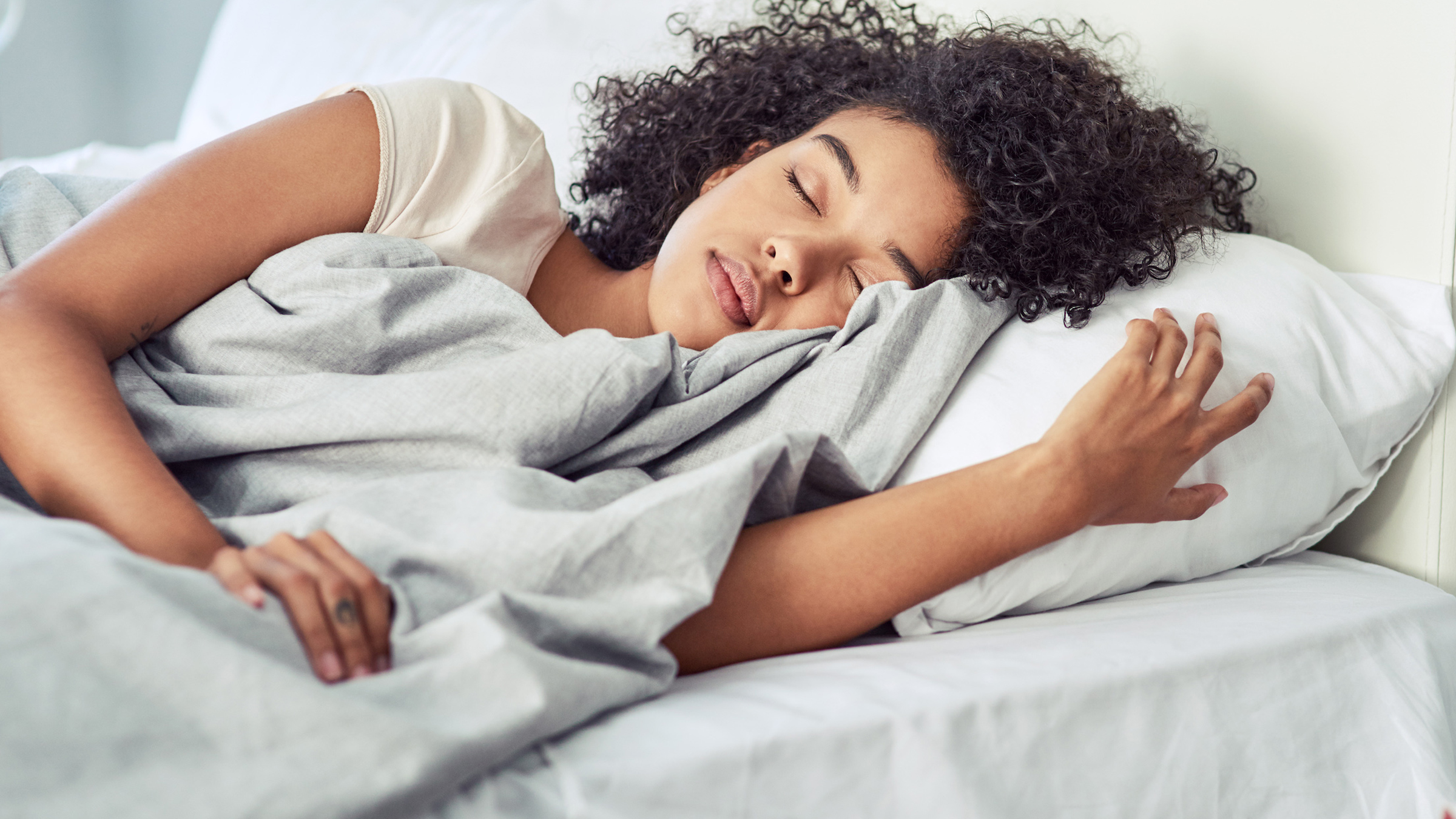
Carbohydrates can also interfere with sleep patterns. “Higher glycemic index foods, including white sugar, syrups, cakes and candies may be associated with insomnia, while high-fiber carbs, such as whole-grains, vegetables, beans, nuts, seeds and various fruit were associated with lower risk and prevalence of insomnia,” says Richard.
Refined carbs spike your blood sugar, which results in an insulin response that can lower blood sugar levels enough to produce more of the hormones that wake you up, such as large amino acids tryptophan. Spicy foods may disrupt sleep, cause acid reflux or be irritating to the esophagus and digestive tract.
By contrast, some foods and drinks have compounds that help regulate parts of the sleep cycle, while others have certain antioxidants and nutrients, such as magnesium and melatonin, that have sleep-enhancing properties.
What foods help you sleep?
If you are looking for foods that help you sleep, then eating some of the below, two to three hours for bedtime, could help.
Salmon
Fatty fish, like salmon, are full of omega-3 and vitamin D, two nutrients that help regulate serotonin. As well as happiness, this neurotransmitter is responsible for establishing a regular sleep-wake cycle.
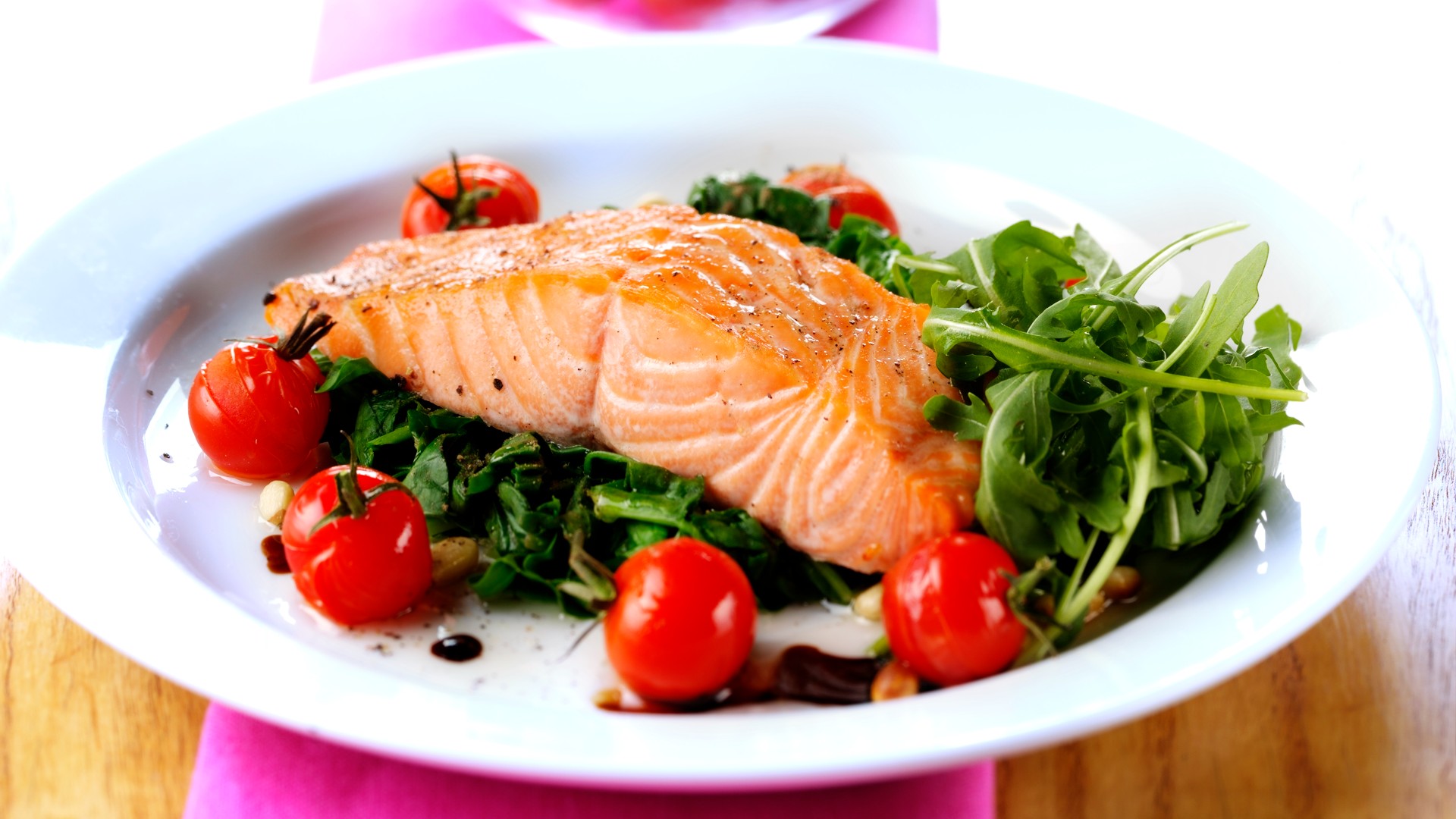
Tart cherries
Tart cherries increase the sleep hormone melatonin, which is produced naturally in the body by the brain’s pineal gland. “Tart cherries make a good after dinner snack to help induce preparedness for a good night’s sleep,” says Richard. If you can’t get hold of them, they can be taken in juice form or as a supplement.
While the research on micronutrients and sleep is limited, it has found specific foods, beverages, ingredients or nutrients that have greater impacts on sleep quality and duration.
Walnuts
Walnuts are rich in omega-3 fatty acids that can assist in melatonin rhythm and circadian rhythm clock functions.
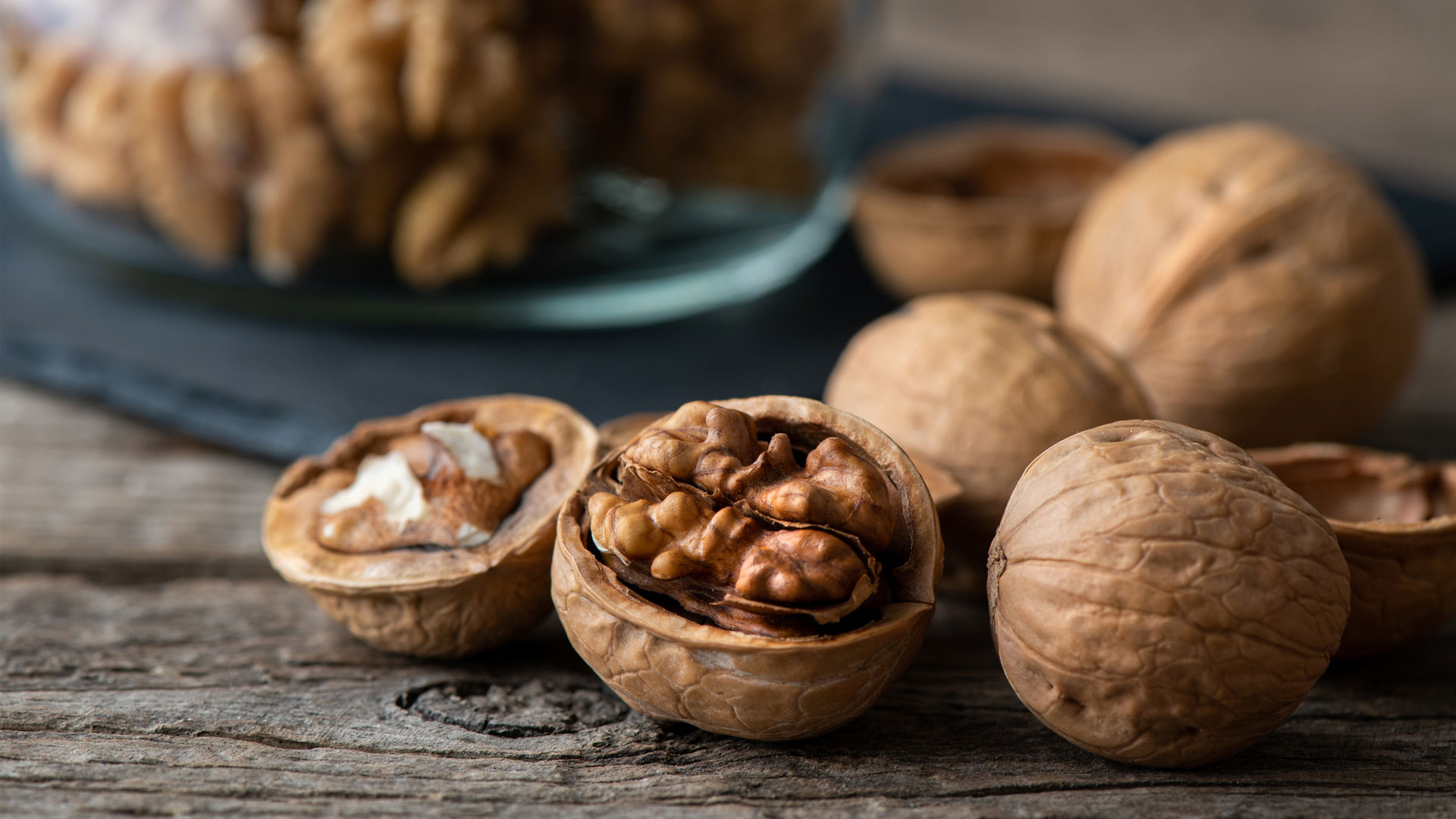
Oats
Oats are a plant source of the amino acid tryptophan, which “contributes to the melatonin and serotonin pathway, which can promote good quality sleep,” says Richard.
Dairy
“Vitamins D, C, B6, B12, calcium and relaxing magnesium found in dairy – as well as fruits, vegetables, nuts, seeds and fortified foods – can contribute to better sleep,” says Richard.
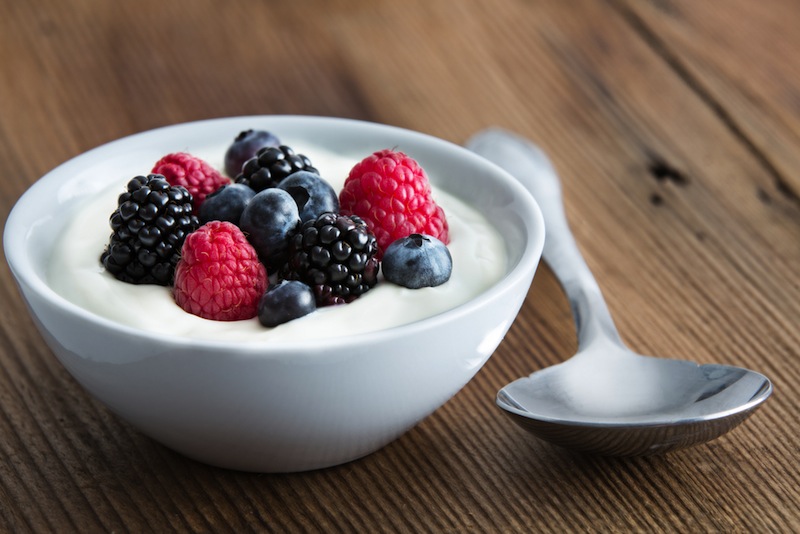
“However, it’s important to keep in mind ‘big picture' thinking for overall long-term quality of sleep,” she says. “For example, looking at lifestyle as a whole: whether it is a Mediterranean diet lifestyle, DASH diet or similar, the fundamentals of adequate amounts of lean protein, quality fats and complex carbohydrates paired with colorful fruits and vegetables rich in antioxidants and phytochemicals are essential, along with overall gut health and movement.
“A culmination of all the nutrients above is imperative to meet the needs of each of our metabolic pathways and recovery systems during adequate sleep,” says Richard. “Adequate hydration, sleep hygiene, reduction of screen time hours before bed, comfortable bedding and clothing, a cool room and soothing bedtime routine – plus stress management habits and consistent routines – will play pivotal roles in overall sleep quality. Incorporating a calming ‘decompression practice’ such as yoga, reading, journaling or meditation, may also be beneficial for better sleep.”
This article is for informational purposes only and is not meant to offer medical advice.
Sign up for the Live Science daily newsletter now
Get the world’s most fascinating discoveries delivered straight to your inbox.

Maddy Biddulph is a freelance health and fitness journalist with over 26 years of experience working for consumer media in the US and UK. As a Level 3 personal trainer and weight loss advisor she is used to trying out and reviewing the latest health and fitness products. At Maddy Biddulph Personal Training, she runs one-to-one and small group sessions, as well as group exercise classes. She specializes in mobility work with seniors and runs regular chair workouts in her hometown of Oxford.










